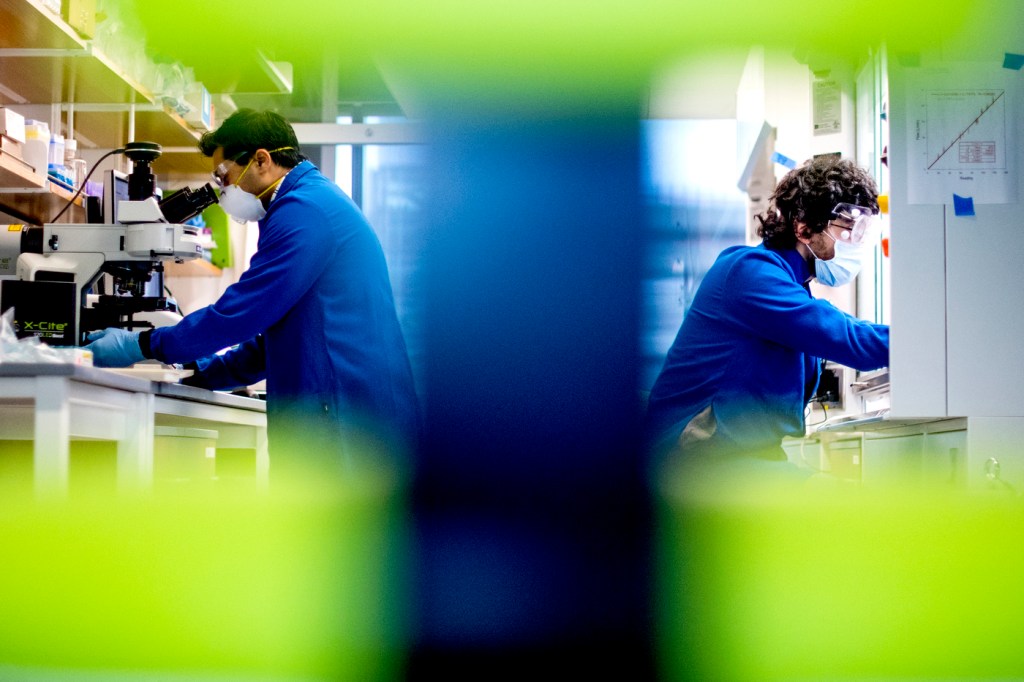Northeastern to hire 500 faculty in five years

To propel the ambitions outlined in its new academic plan, Experience Unleashed, Northeastern University will recruit 500 full-time, research-engaged faculty members over the next five years—an unprecedented pace of hiring that represents a significant, multimillion dollar investment in the future of teaching and research.
The hiring initiative starts immediately with recruitment of new faculty for the fall of 2022. The majority of new hires will be tenured and tenure-track, but some will also be non-tenure-track, full-time faculty. The new arrivals will join the university’s current 1,630 full-time faculty members.
“The academic plan begins with impact. … We are going to do that by being ever-more experiential in everything we do on the learning front, and ever-more context-driven and problem-driven with our research,” says David Madigan, provost and senior vice president for academic affairs at Northeastern. “The faculty are, in so many ways, the heart of the university. And so if we are to maximize our impact in the world, we need to absorb talent at an ever-increasing rate.”
The new academic plan outlines how the university will build on its overarching goal to educate global leaders and develop solutions for humanity’s future. In pursuit of that goal, Experience Unleashed centers learning and discovery around current global issues rather than around specific academic disciplines.
While the university has emphasized health, security, and sustainability as “global imperatives” for its research enterprise, the new academic plan delves deeper. “Specific foci will evolve over time,” Madigan says. He envisions potential clusters intersecting with topics such as social justice, brain health, experiential artificial intelligence, biotechnology, and digital misinformation, among others.
As part of the new hiring initiative, the university will cluster faculty and students across departments and colleges into “Impact Engines” pursuing solutions to societal problems.
The hiring plan will fuel these “Impact Engines,” Madigan says. “We want to attract faculty members who have deep disciplinary knowledge and want to advance that very knowledge in a real-world context. We want to hire faculty who want to do work that has impact in the world, to do work that, sort of inevitably, has to be interdisciplinary.”
That means that the university doesn’t have a checklist of roles to fill. Instead, Northeastern’s hiring process begins with the big problems in the world that need solutions. For example, an “Impact Engine” focusing on misinformation could call for faculty in law, ethics, technology, or other disciplines. New hires under the plan will have joint appointments.
Such clusters of diverse expertise and experience will be untethered from the constraints of siloed disciplines, Madigan says, and encouraged to collaborate with unexpected colleagues. Perhaps, the provost says, a mathematician would work with artists and neuroscientists.
Northeastern aims to hire faculty who are diverse in more than just their fields of study, Madigan says.
“If we’re going to be in the world addressing problems of the world,” Madigan says, “It absolutely is imperative that we are as diverse as the world in which we are operating, and that we are inclusive and welcoming.”
Typically, Northeastern recruits and onboards about 70 new faculty a year. To ramp up hiring and achieve the goal of adding 500 new full-time faculty over the next five years, Northeastern’s initiative amounts to an investment of several hundred million dollars in solutions-oriented research through competitive salaries and the start-up costs for new research endeavors.
Over the past decade, the university has been expanding research capacity on its main Boston campus. That has included building projects such as the Interdisciplinary Science & Engineering Complex, which opened in 2017, and current construction on its neighbor EXP, slated to open in 2023, housing teaching and research laboratories.
Northeastern has also been expanding its international campus network. The planned merger with Mills College in Oakland, California, gives Northeastern the distinction of being the only U.S. university with a comprehensive campus on both coasts. The university also has several campuses across the U.S., and campuses in Canada and a campus in London. Northeastern will recruit faculty across its global network.
For media inquiries, please contact media@northeastern.edu.





